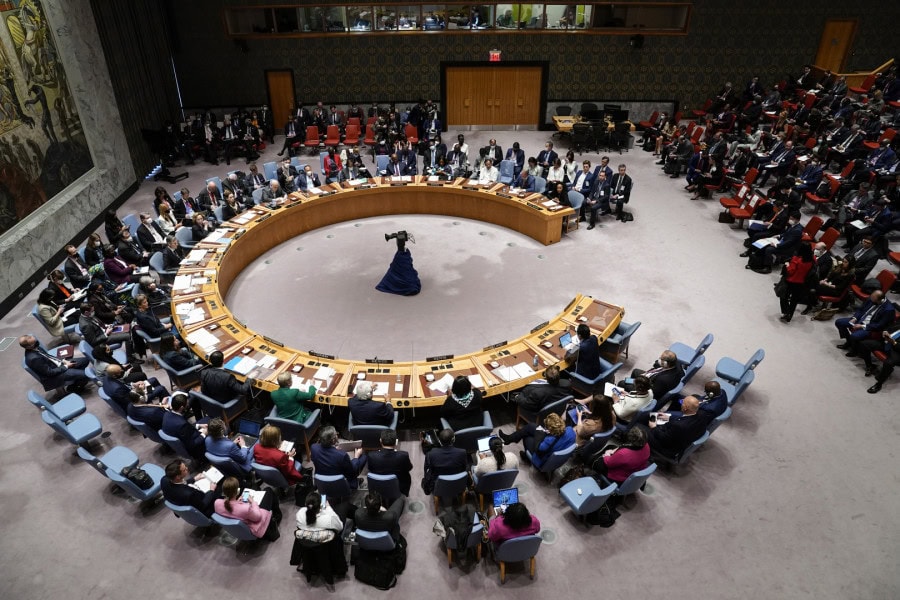New York: On Thursday, China and Russia vetoed a United Nations resolution sponsored by the US that would have placed harsh new sanctions on North Korea for its recent tests of intercontinental ballistic missiles capable of carrying nuclear bombs.
Read: North Korea tests intercontinental ballistic missile system
The Security Council’s 15-member vote was 13-2, marking the first significant disagreement on a North Korea sanctions resolution among the five permanent members of the UN’s most powerful body.
After North Korea’s first nuclear test explosion in 2006, a united Security Council imposed sanctions, which were increased throughout the years in a total of twelve resolutions aimed at reining in its nuclear and ballistic missile programmes and cutting off money, all of which were unsuccessful.
However, after the vote, China and Russia warned the Security Council that they reject further penalties, stating that what is required now is a revitalised conversation between North Korea and the US.
The vote disappointed but did not surprise US Ambassador Linda Thomas-Greenfield, who described North Korea’s 23 ballistic missile tests this year, including six intercontinental ballistic missiles (ICBMs) following a five-year suspension, as “a grave threat to international peace and security.”
“The world faces a clear and present danger from the DPRK,” she added, referring to the country’s official name, the Democratic People’s Republic of Korea, and highlighting the country’s persistent pursuit of nuclear weapons.
Members agreed to further restrict petroleum supplies to North Korea if it carried out a ballistic missile launch capable of reaching intercontinental ranges in the council’s most recent sanctions resolution, which was passed in December 2017.
Before the vote, Thomas-Greenfield asked the council to follow through on its promise and take action against North Korea’s ICBM launches and nuclear development.
During meetings with the Trump administration in 2018 and 2019, China’s U.N. Ambassador Zhang Jun chastised the United States for not reciprocating North Korea’s “positive initiatives.”
He stated that it is now the United States’ job to resume talks with Pyongyang and find a political solution to the situation on the Korean Peninsula, where the 1950-53 Korean War ended in an armistice rather than a peace treaty.
“The situation and peninsula have evolved to what they are now primarily as a result of the United States’ policy reversals and failure to uphold the outcomes of prior discussions,” he said.
Vassily Nebenzia, Russia’s UN Ambassador, said Moscow has repeatedly reminded the US that fresh sanctions against the DPRK were “a path to a dead-end,” and that “further tightening the sanctions pressure on Pyongyang would be useless and inhumane.”
“The security issues in the region, which directly affect Russia,” he continued, “cannot be solved through crude and blunt methods that have a direct impact on the population.” “The situation on the (Korean) peninsula has only gotten worse over the last year.”
Nebenzia claimed that Western countries had shifted blame to North Korean officials while rejecting Pyongyang’s repeated requests for the US to cease “hostile activity that will open the way for talks.”










